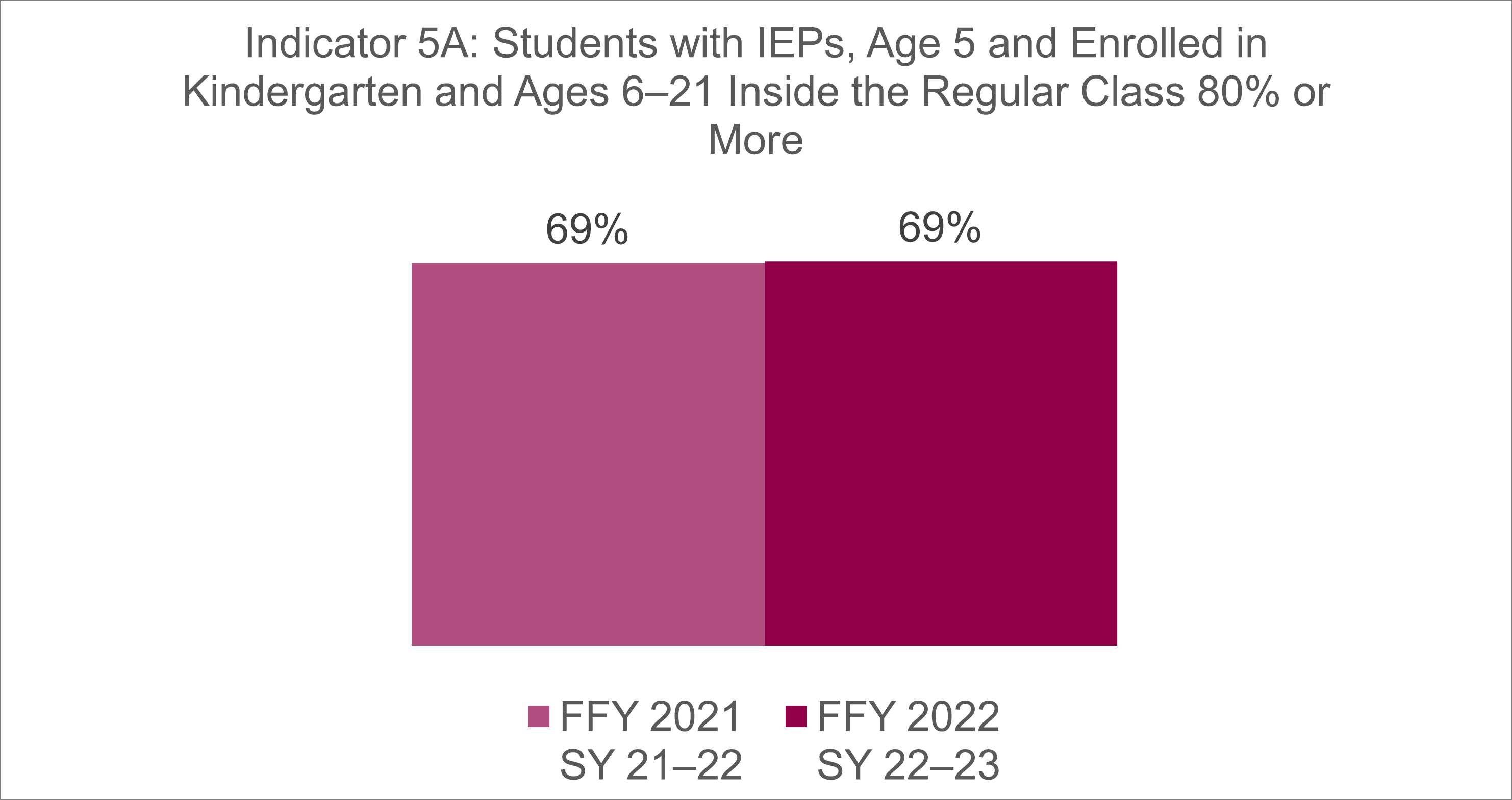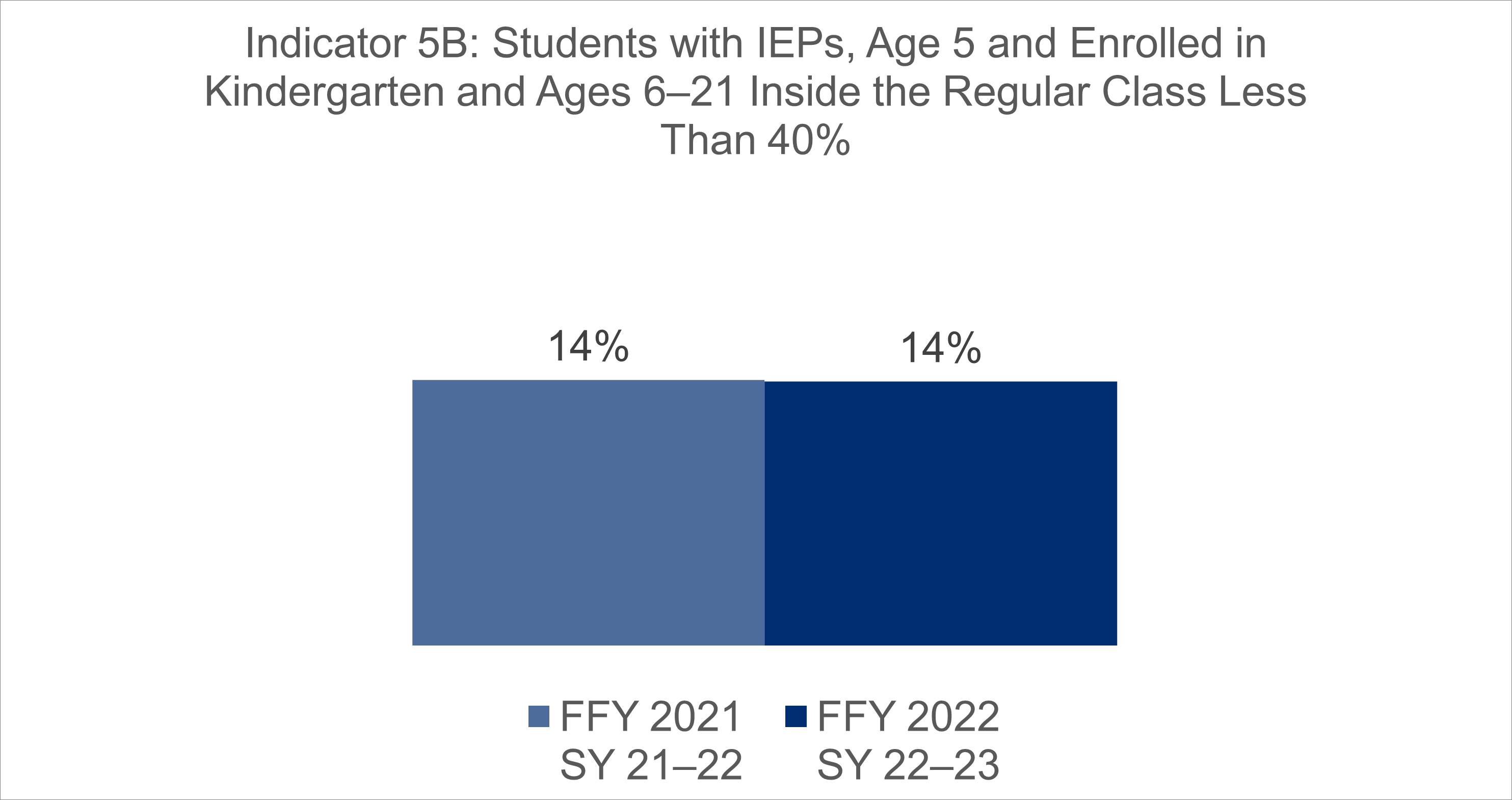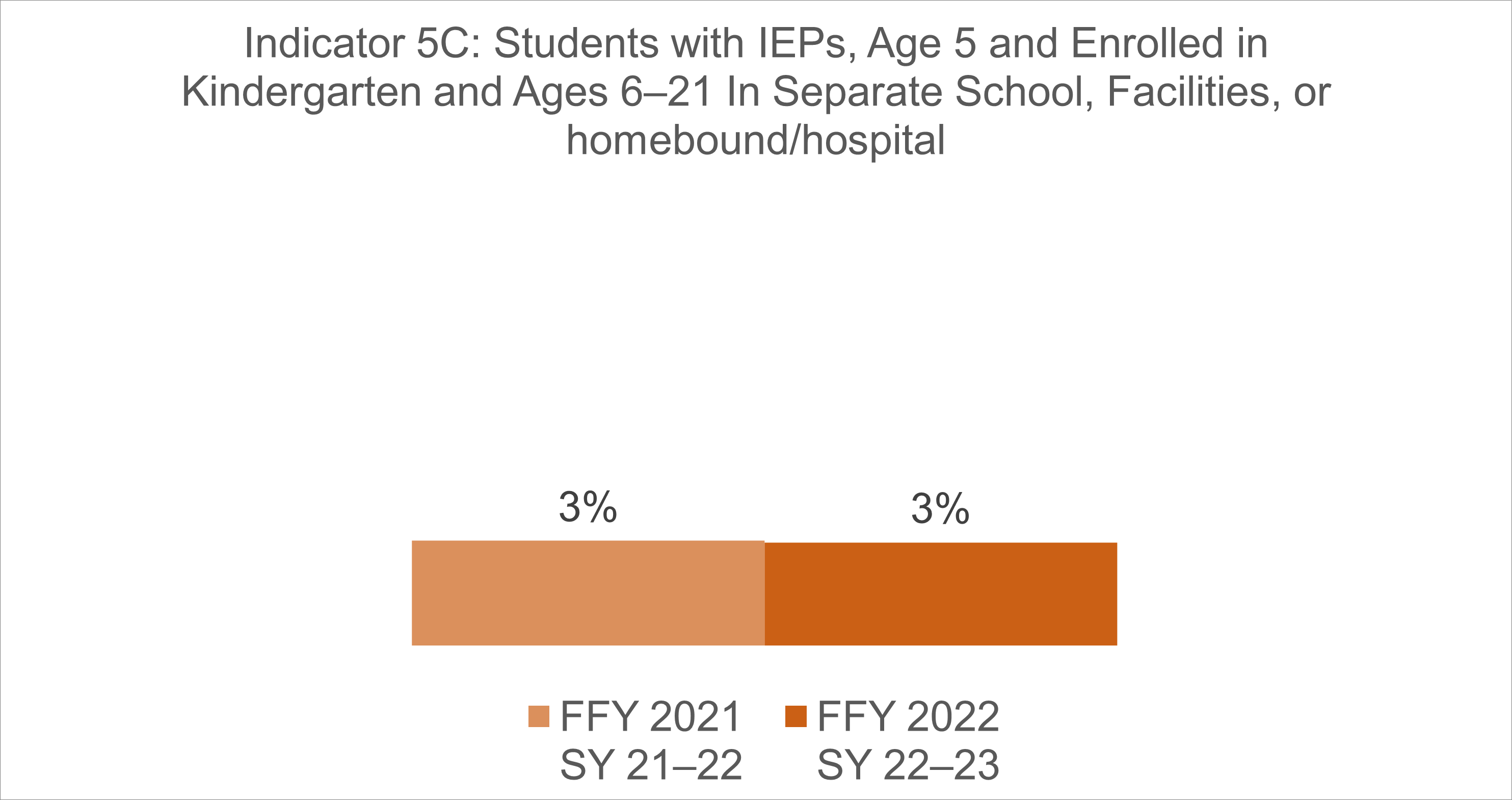Indicator 5: Education Environments (Ages 6–21)
What Indicator 5 Is
Indicator 5 collects information for children who are age 5 in kindergarten through age 21. It looks at how much school time during which students with IEPs are in the same classroom as students without disabilities. It also looks at how many students go to their local school or a separate school.
Why Indicator 5 Is Important
Indicator 5 shows us which Public Education Agencies (PEA) may need help to improve inclusive teaching and learning. The goal of this indicator is to analyze data so that we can improve student outcomes. A student with an IEP who is in regular classes has more opportunity for the same schoolwork and learning standards that all students have. Inclusive practices are essential in education because every student deserves to experience and learn in an atmosphere of respect, where they can develop and maintain friendships in their schools and communities.
How Indicator 5 Is Measured
Within Indicator 5, there are three education settings for students with IEPs, age 5 and enrolled in kindergarten and ages 6–21:
- 5A. Inside the regular class 80% or more of the day
- 5B. Inside the regular class less than 40% of the day
- 5C. In separate schools, residential facilities, or home-bound/hospital placements
Data for Indicator 5
| Federal Fiscal Year (FFY) | 2021 | 2022 |
|---|---|---|
| Data from School Year (SY) | 2021–2022 | 2022–2023 |
| 5A | 69% | 69% |
| 5B | 14% | 14% |
| 5C | 3% | 3% |
More Information
Questions or comments can be emailed to the ESS Operations inbox.
| < Indicator 4 | SPP/APR HOME | Indicator 6 > |
|---|










